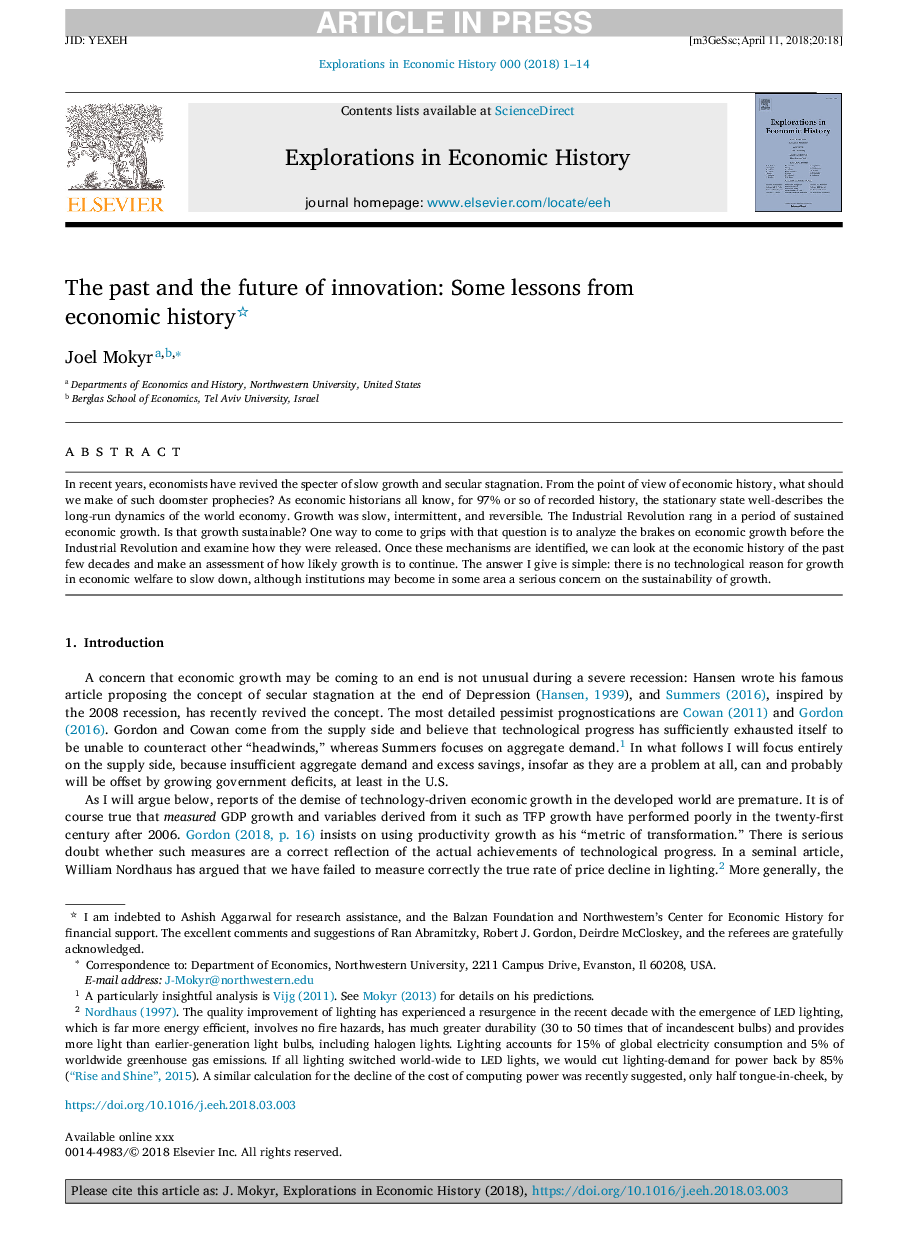| Article ID | Journal | Published Year | Pages | File Type |
|---|---|---|---|---|
| 7351857 | Explorations in Economic History | 2018 | 14 Pages |
Abstract
In recent years, economists have revived the specter of slow growth and secular stagnation. From the point of view of economic history, what should we make of such doomster prophecies? As economic historians all know, for 97% or so of recorded history, the stationary state well-describes the long-run dynamics of the world economy. Growth was slow, intermittent, and reversible. The Industrial Revolution rang in a period of sustained economic growth. Is that growth sustainable? One way to come to grips with that question is to analyze the brakes on economic growth before the Industrial Revolution and examine how they were released. Once these mechanisms are identified, we can look at the economic history of the past few decades and make an assessment of how likely growth is to continue. The answer I give is simple: there is no technological reason for growth in economic welfare to slow down, although institutions may become in some area a serious concern on the sustainability of growth.
Related Topics
Social Sciences and Humanities
Arts and Humanities
History
Authors
Joel Mokyr,
